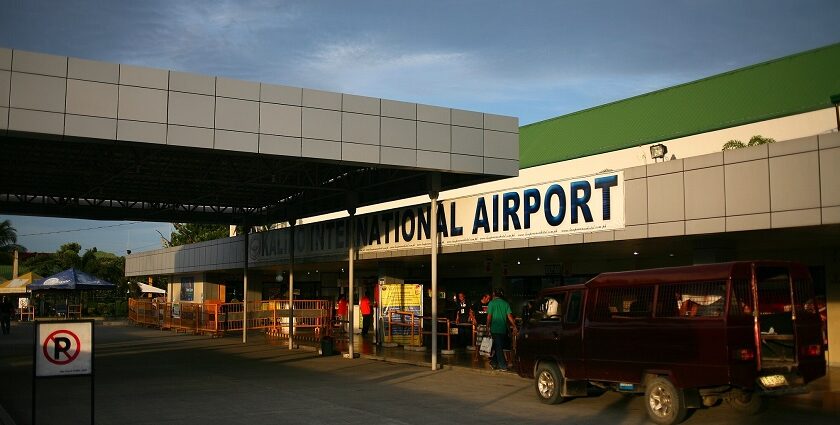Airports in Philippines serve as important gateways to its busy cities, stunning beaches, and natural surroundings. With a growing tourism industry, the country displays a range of airports that cater to both domestic and international travelers. From the capital city of Manila to the beautiful islands of Palawan and Cebu, each airport offers unique services and convenient access to nearby attractions. Whether you’re a frequent flyer or a first-time visitor, these airports in the Philippines island ensure a smooth journey, providing essential amenities and efficient connections to explore.
10 Major Airports In The Philippines
Discover the top airports in Philippines, from Manila’s international hub to the gateway to Palawan.
1. Ninoy Aquino International Airport, MNL
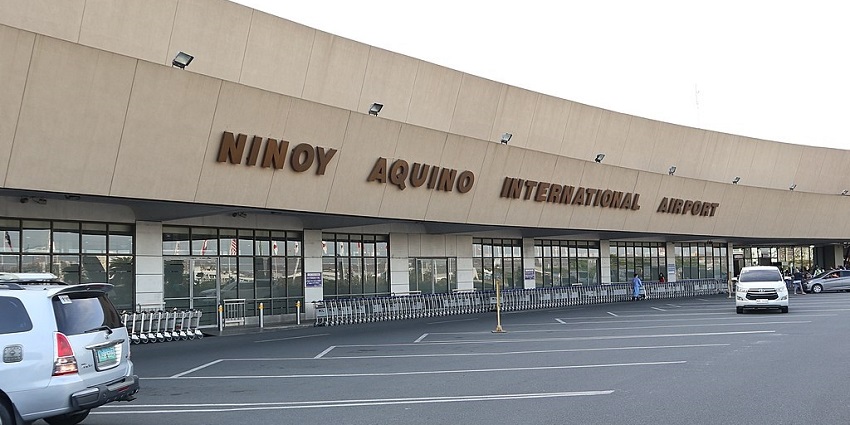
Photo: Patrickroque01 / Wikimedia Commons
The Ninoy Aquino International Airport (NAIA) stands as the primary international gateway and busiest airport in the Philippines. Comprising multiple terminals, it efficiently manages both domestic and international flights, providing a comprehensive range of services from diverse dining options to duty-free shopping. Recognizing its high passenger volume, NAIA constantly invests in facility upgrades, striving to enhance operational efficiency and improve the overall travel experience for millions of passengers annually.
Location: Pasay and Parañaque, 7 kilometers south of central Manila
How To Reach: Taxis, airport shuttle buses, the Light Rail Transit (LRT)
Nearby Attractions: Manila Bay, Intramuros, Rizal Park
2. Mactan-Cebu International Airport, CEB
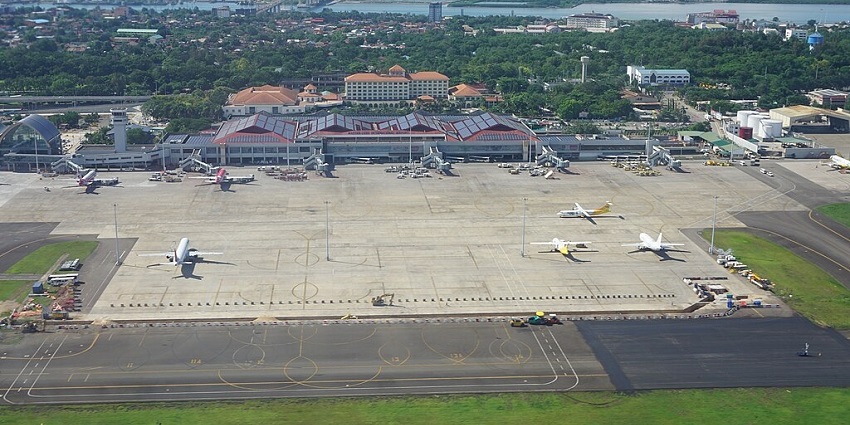
Photo: Lucky Ambago Purok Otso / Wikimedia Commons
Mactan–Cebu International Airport (MCIA), located on Mactan Island in Lapu-Lapu City, serves as the main gateway to the Central Visayas region. As the second busiest airport in the Philippines, it plays a crucial role in connecting the Visayas and Mindanao regions with international destinations. MCIA is located on a 797-hectare (1,970-acre) site and serves as a hub for Philippine Airlines and an operating base for Cebu Pacific, Philippines AirAsia, and Sunlight Air.
Location: Lapu-Lapu City, 15 kilometers from Cebu
How To Reach: Taxis, ride-hailing services, buses
Nearby Attractions: Cebu City, Mactan, Bohol
3. Puerto Princesa International Airport, PPS
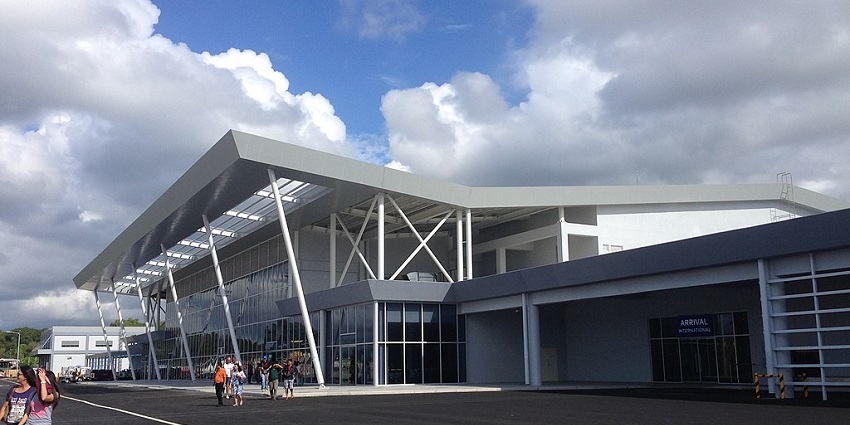
Photo: Luisztdt / Wikimedia Commons
Puerto Princesa International Airport (PPS), one of the key airports in Palawan, Philippines, acts as the main gateway to Palawan, Philippines. Located conveniently just 2 km from Puerto Princesa’s city center, the airport provides easy access to the province’s attractions. As an international airport, PPS is classified as such by the Civil Aviation Authority of the Philippines. The airport boasts a 13,000-square-meter terminal with a capacity of two million passengers annually.
Location: 2 kilometers from downtown Puerto Princesa
How To Reach: Taxis, tricycles, vans
Nearby Attractions: Puerto Princesa, El Nido, Coron, Palawan beaches and parks
4. Laguindingan Airport, CGY
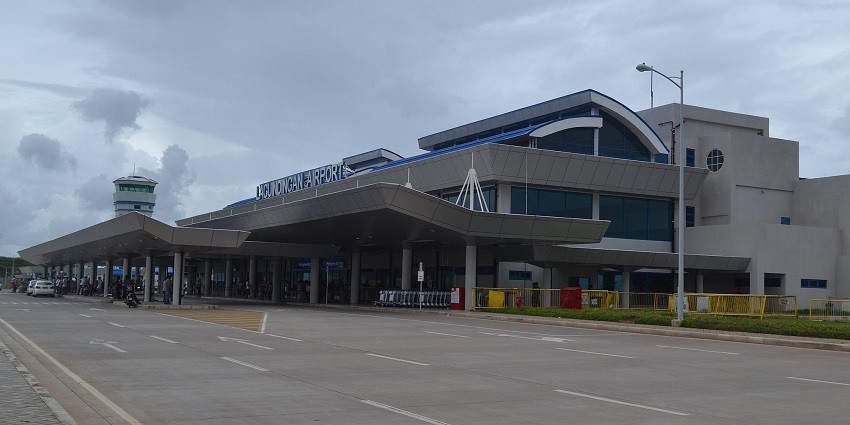
Photo: Renzoy16 / Wikimedia Commons
Airports in the Philippines, particularly Laguindingan Airport, play a vital role in regional connectivity and tourism. Serving as the gateway to Northern Mindanao, the airport is located in Laguindingan, Misamis Oriental, approximately 46 kilometers from Cagayan de Oro. Since its opening on June 15, 2013, Laguindingan Airport has become the second-busiest airport in Mindanao. Recent upgrades, including a P12.75 billion Public-Private Partnership arrangement with Aboitiz InfraCapital, aim to expand its annual passenger capacity from 1.6 million to 3.9 million by 2026.
Location: 46 kilometers from Cagayan de Oro City
How To Reach: Shuttle buses, taxis, vans
Nearby Attractions: Cagayan de Oro, Northern Mindanao
5. Clark International Airport, CRK
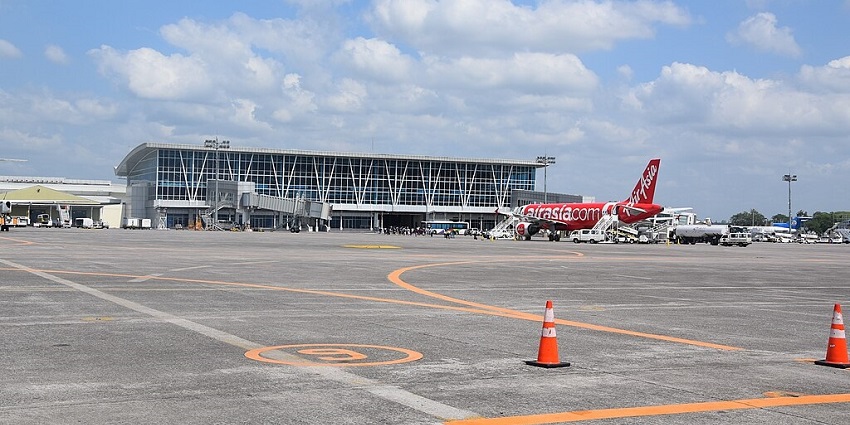
Photo: Joseph Marc Salas / Wikimedia Commons
Clark International Airport, one of the key airports in the Philippines, operates within the Clark Freeport Zone between Angeles City and Mabalacat in Pampanga. CRK serves as a premier gateway to the Philippines, connecting Luzon to 19 domestic and 14 international destinations via 18 airlines. It is easily accessible from Metro Manila via the Subic–Clark–Tarlac Expressway (SCTEX). Managed by the Luzon International Premier Airport Development (LIPAD) Corp, the airport boasts a new terminal with a design capacity of 8 million passengers per annum, expandable to 12 million.
Location: Pampanga
How To Reach: P2P buses, private or rental vehicles
Nearby Attractions: Nayong Pilipino Clark, Zoocobia Clark
6. Davao Airport, DVO
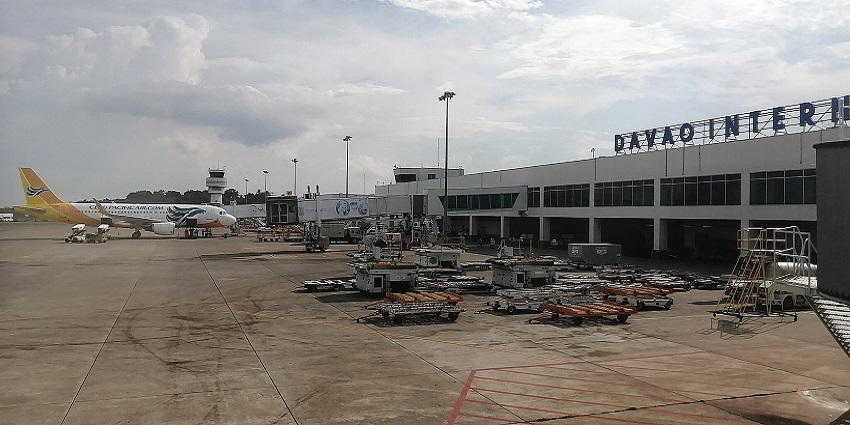
Photo: RoyKabanlit / Wikimedia Commons
Francisco Bangoy International Airport, also known as Davao International Airport (DVO), is a vital part of the airports in the Philippines, serving as the primary airport for Davao City and the main gateway to Mindanao. Located 12.5 km north of the city center, this international airport covers approximately 209 hectares. The airport features a 3,000-meter precision runway and a modern terminal that can handle around 2 million passengers and 84,600 metric tons of cargo annually.
Location: Davao City, Davao del Sur, Mindanao
How To Reach: Taxis, cabs, private vehicles
Nearby Attractions: Philippine Eagle Center, Eden Nature Park and Resort
7. Daniel Z. Romualdez Airport, TAC
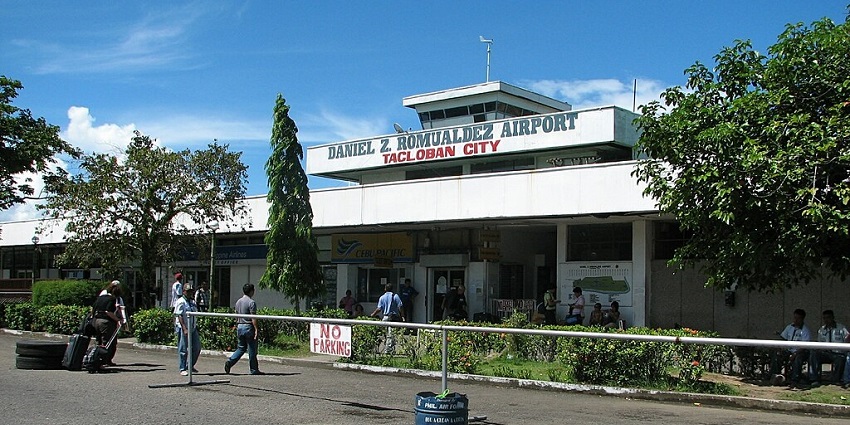
Photo: Mtoz / Wikimedia Commons
Daniel Z. Romualdez Airport (TAC), also known as Tacloban City Airport, serves as the main gateway to Eastern Visayas from Manila and Cebu. It is situated in Tacloban, a highly urbanized city in Leyte. It was the seventh-busiest airport in the Philippines in 2022, serving 1.48 million passengers. Airports in the Philippines, such as DZR Airport, play a key role in boosting tourism and regional connectivity. To further enhance its capabilities, DZR Airport is undergoing a P2.3-billion modernization project to meet international standards by 2026.
Location: Tacloban City, Leyte, Philippines
How To Reach: Taxis, vans, shuttles
Nearby Attractions: San Juanico Bridge, Leyte Landing Memorial National Park
8. Zamboanga Airport, ZAM
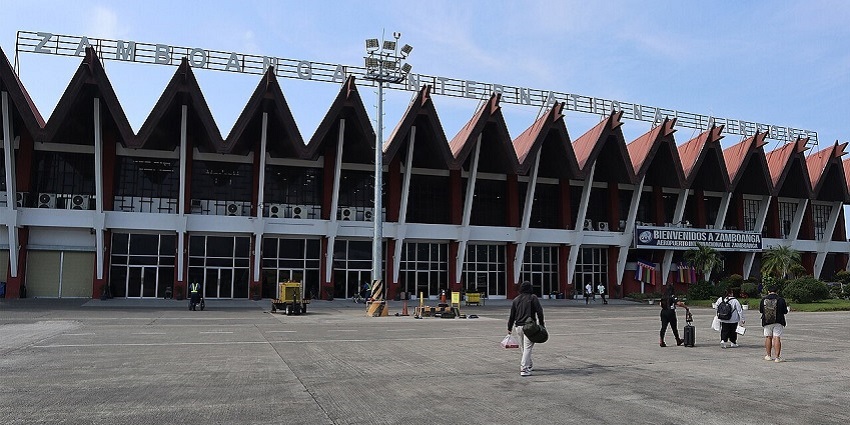
Photo: Patrickroque01 / Wikimedia Commons
Zamboanga International Airport is a key player among airports in the Philippines, facilitating travel to the culturally rich and naturally beautiful Zamboanga region in Mindanao. The airport has undergone upgrades, including the expansion of its runway, apron, and taxiway, with the aim to cater to international flights to and from Southeast Asian destinations. The expanded passenger terminal building can now accommodate 750 passengers, a 50% increase from its previous capacity.
Location: Zamboanga City, Zamboanga del Sur, Mindanao, Philippines
How To Reach: Taxis, Jeepneys, Buses
Nearby Attractions: Fort Pilar, Pasonanca Park
9. Bacolod–Silay Airport, BCD
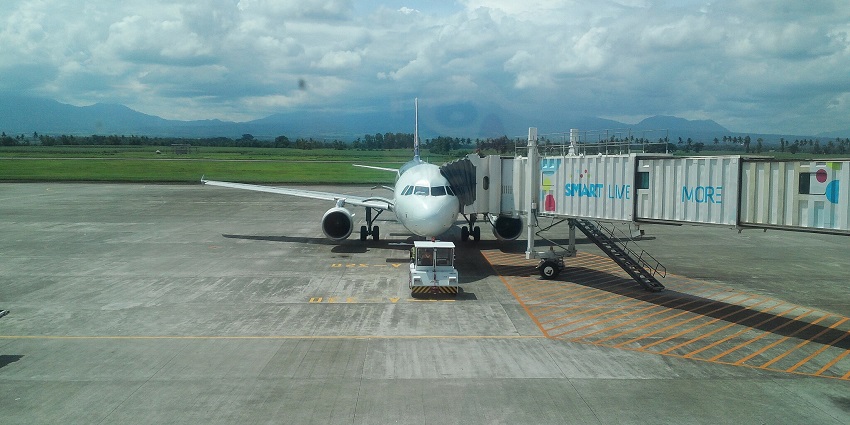
Photo: Choi2451 / Wikimedia Commons
Bacolod–Silay International Airport (BCD) serves as the primary gateway to Bacolod City and the Negros Occidental region. Located 15 kilometers northeast of Bacolod in Barangay Bagtic, Silay, it replaced the Bacolod City Domestic Airport in 2008 and inherited its IATA and ICAO codes. As one of the key airports in the Philippines, BCD is capable of handling international air traffic and is the busier of the two major airports serving Negros Island. The single-terminal airport ensures easy navigation and provides essential services for a comfortable experience.
Location: Silay City, Negros Occidental, Philippines
How To Reach: Taxi, buses, private vehicles
Nearby Attractions: San Sebastian Cathedral, Capitol Lagoon Park
10. Ilo-Ilo Airport, ILO
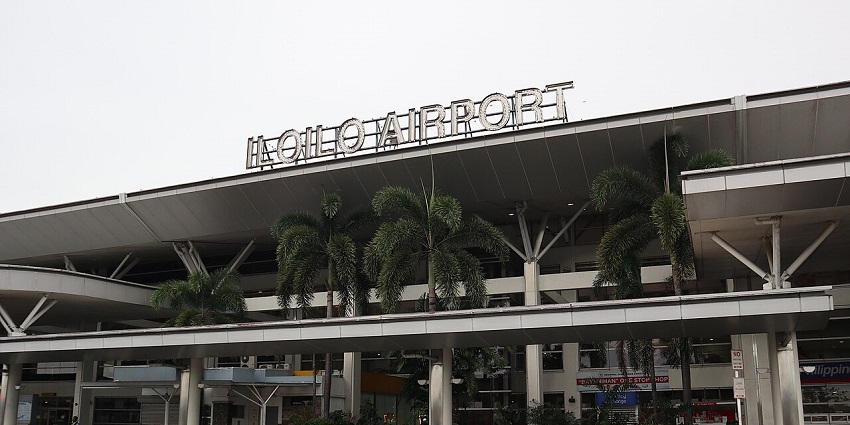
Photo: Patrickroque01 / Wikimedia Commons
Iloilo International Airport (ILO), also known as Cabatuan Airport, serves Metro Iloilo–Guimaras and the rest of Iloilo Province in the Western Visayas region of the Philippines. Inaugurated on June 13, 2007, and commencing commercial operations the following day, it replaced Mandurriao Airport and inherited its IATA and ICAO codes. As the fifth-busiest airport in the Philippines, Iloilo International is classified as an international airport by the Civil Aviation Authority of the Philippines and is the first in Western Visayas built to international standards.
Location: Cabatuan, Iloilo, Philippines
How To Reach: Taxis, vans, buses, private vehicles
Nearby Attractions: Miagao Church (Santo Tomas de Villanueva Parish Church)
Airports in Philippines are crucial not only for connectivity but also for offering seamless experiences that enrich your travels. Flying in or out of Manila, Cebu, or Palawan, these airports ensure easy access to some of the country’s most iconic destinations. With modern upgrades and facilities in place, they cater to the needs of international and domestic passengers. Planning for your next adventure? Book your trip with TripXL with exclusive travel packages, ensuring your journey across the Philippines is as smooth and exciting as possible.
Cover Photo: Paolobon140 / Wikimedia Commons


 WhatsApp
WhatsApp
 Twitter
Twitter
